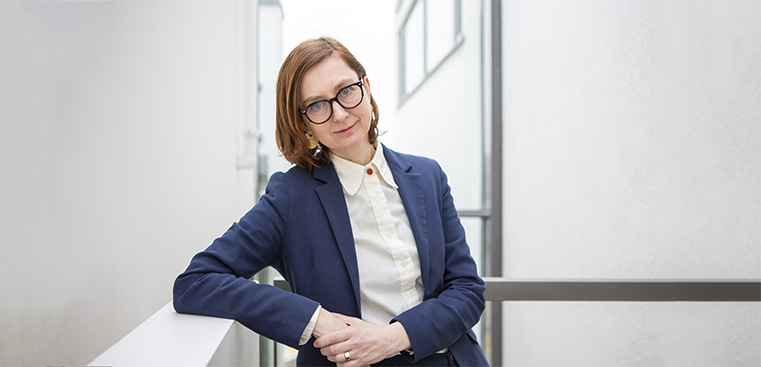New professor with focus on digital cultures
2020-01-31

Welcome! You come most recently from Lund University; how did you come to seek a professorship here?
"Almost fifteen years ago I studied at City, University of London and during a doctoral workshop in Scotland I got to know several people from the University of Borås. I came here as a guest doctoral student and had Jan Nolin as my supervisor. That was a number of years ago now, but when I saw that a professorship was available, it felt perfect for me. In Sweden, the Swedish School of Library and Information Science is the largest and first of its kind and it is an important research environment throughout the Nordic region. It feels exciting to be a part of it and to contribute.
Tell me, what will you work with?New episode of the Research Podcast! The arrival of search engines has changed society at large – far more than just on the private level.
"Over the next few years I will mainly research in two projects. Mistra Environmental Communications is coordinated by the Swedish University of Agricultural Sciences over four years and has a funding of SEK 60 million. The aim is to facilitate communication about the environment to society and how this can be designed to be more effective. My role is to participate in a part that studies media and art, in which I focus on social media and search engines. With this project, the link between environmental and sustainability issues and library and information science at the University of Borås is strengthened.
The second project I work with, Algorithms and Literacies, is a Swedish Research Council-funded project that deals with, among other things, how young people imagine that the internet is controlled and what problems literacy and source criticism can solve. I will also lead the research group Information Practices together with Ola Pilerot, and have also taken on a responsibility to create a more structured network for doctoral students in library and information science in Sweden.
In your latest book Invisible Search and Online Search Engines, you describe how information retrieval and search engines' entrance affect people's everyday lives. Can you tell us how?
"Search engines are part of how and who we are as citizens, as tourists, patients; yes, in all parts of society. It is a very profound change that is happening, and it happens fast. A concrete example is how Google can even change family relationships. A woman in our studies talked about how she used to call her mother when she wanted to ask about a recipe. Nowadays, she googles it instead, which means the conversations between mother and daughter have changed. She told me that she now calls her mother less often and the conversations have taken on a different character.
What do you hope your research on this issue will lead to?
"I hope that it will lead to a more critical approach to the power that Google and other similar platforms have in our everyday lives. This central information infrastructure that exists throughout our society – we do not have any real control over it. We need to take responsibility for that, as a society, not just as individuals, which is what discussions about the importance of literacy and source criticism are mostly about these days.
You live in Lund, so how much time will you spend in Borås?
"I will be here about three days a week and the rest of the time I will work remotely from Lund. My family have positive feelings about Borås because my husband is from here and my in-laws live here. My ten-year-old son is Elfsborg's biggest fan, haha. He's got a t-shirt on the wall with all the players' autographs on it. So there is a clear Borås connection in our family.
Read more
Jutta Haider's research profile
Text: Lina Färm
Image: Suss Wilén
Translation: Eva Medin

